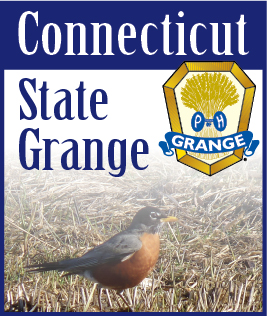| NOVEMBER 19, 2011 -- The Joint Select Committee on Deficit Reduction, or as I like to call them- the Not So Super Committee, has until Wednesday of next week to finally submit their proposal for slashing $1.2 trillion from the nation’s 10-year deficit. As predicted by the media, most of Washington, and all 2nd graders, things are not progressing well and the committee will most likely fail to produce a complete proposal by their aforementioned deadline. Conservatives have re-proposed the balanced budget amendment, and it will likely be taken up for a vote as early as today. However, most legislative activity has come to a screeching halt as legislators wait to see just what the Super Committee’s proposal will contain. In other words, they want to know just how little money they will be expected to work with once budget talks finally come to an end…or fail altogether…again. One such issue that has been placed on the backburner is the new 2012 Farm Bill. Though we don’t know what it will contain, there have been some pretty good clues and just about every interest group in the country has taken some kind of action to help swing things their way.
With the natural punctuality of Washington, the House and Senate Agriculture Committees missed a November 1st deadline to make policy recommendations to the Super Committee. These recommendations would have specified how to cut their $23 billion from the farm bill. Then again, they had previously sent letters to the committee and some cuts seem inevitable anyway, such as direct cash payments to producers, which is supposed to save about $40 billion. What safety net will replace that isn’t so certain and numerous proposals have already been made in that regard. In response to the rumor about cuts to clean energy programs, renewable energy groups have already banned together to form the new Ag Energy Coalition. As these programs create jobs and help spur economic development, you would assume this isn’t a good time to lose them. Conservation programs and the nutrition title are also in the chopping block, but unlike the true agriculture titles, both can only be cut by a maximum of 2% under the agreement.
Going back to safety nets for producers, an interesting piece contained in the Super Committee’s draft bill is a new revenue insurance idea. It would grant producers more protection by installing a county-based standard to cover losses not insured by a producer’s personal crop insurance policy. However, those residing in larger counties with a different assortment of problems haven’t quite warmed up to this idea and are seeking more of an individualized, farm-based approach. These opponents will probably get their wish as this revenue program, according to the CBO, is too expensive if agriculture is to keep its other safety net programs and policies, such as countercyclical aid. Countercyclical aid is an economic term used to describe how government can sometimes affect certain industries by helping alleviate price demands when they go too high or spurring them when they go too low. It’s the government’s way of intervening on the business cycle.
So no definite measures have been taken regarding farm bill specifics, but just to add to everyone’s anxiety, there’s also the fact that many ag groups are hoping to attach the farm bill to the committee’s deficit reduction plan in order to avoid floor amendments. However, many interest groups are trying to do the same with many other pieces of legislation as well; making the line to see Santa pretty long this year. I’m predicting that these ag groups will have a better chance of getting heard thanks to Max Baucus. Baucus is a member of the Super Committee, sits on the Senate Agriculture Committee, is Chairman of the Finance Committee, and is from Montana- that’s about as influential as we could hope for these days. I included his legacy to Montana because like every past farm bill struggle, regional interests are as much an issue as federal interests and Montana is still very much a rural/agricultural state. In addition, it’s worth noting that aside from ranching, wheat is Montana’s most plentiful and profitable commodity. It’s also worth mentioning that rice, cotton, and wheat probably have the most to gain from countercyclical aid programs…but I’m not making predictions.
Overall, everything we hear should be taken with a grain of salt until the Super Committee finally releases its proposal for Congress to vote on. That vote is supposed to be taken in December but if the Super Committee doesn’t meet its deadline, that deadline will most likely be null and void as well. Farm bill specifics have been kept very secret thus far and I’m not betting on anything before next Wednesday.
P.S. Sorry about the lack of blogs the past couple of weeks. National Grange staff have been away at our annual 10-day Convention in Tulsa, OK. This blog officially represents my first collective thought since our return.
- Grace Boatright
National Grange Programs Assistant |
